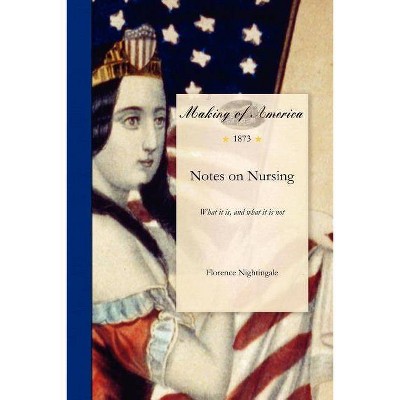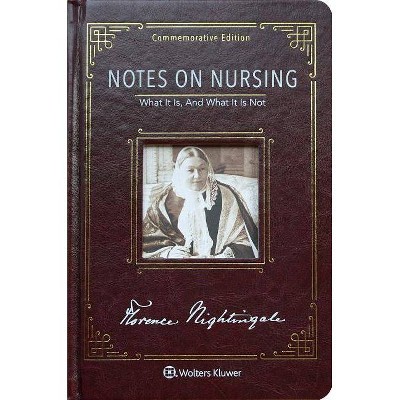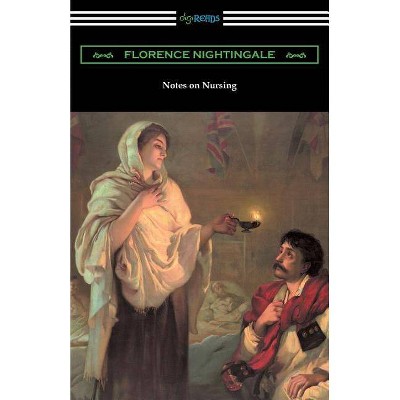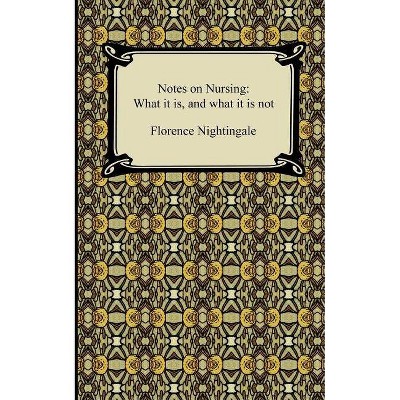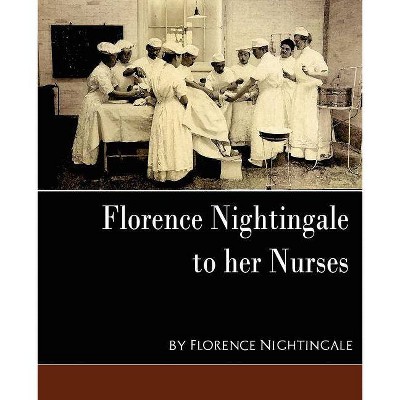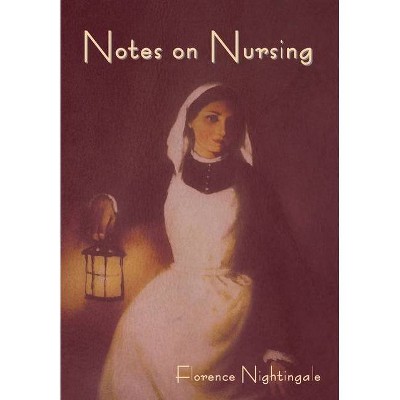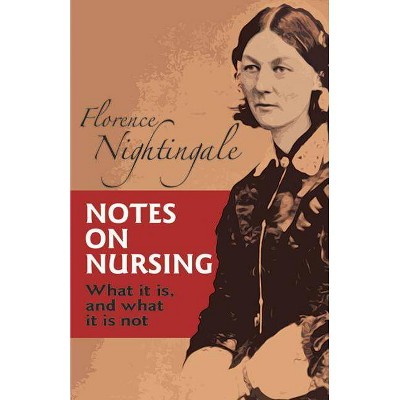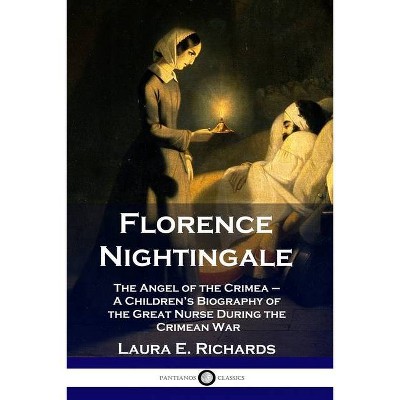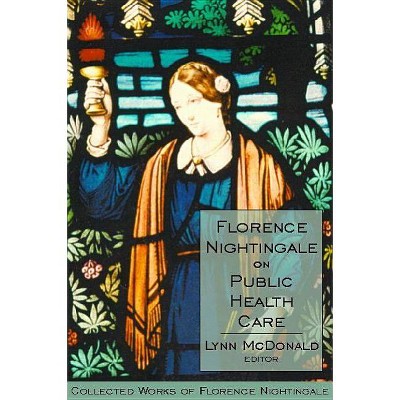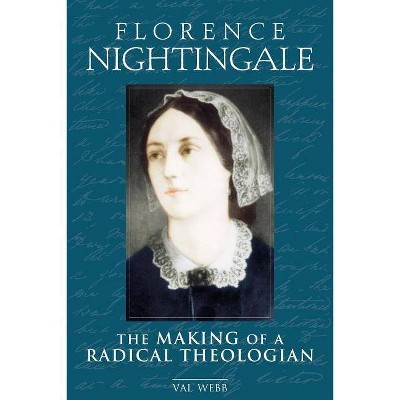Notes on Hospitals - by Florence Nightingale (Paperback)
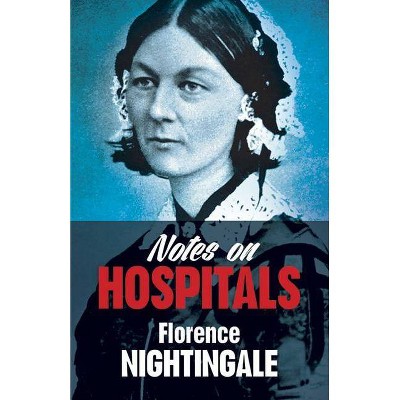
Similar Products
Products of same category from the store
AllProduct info
<p/><br></br><p><b> About the Book </b></p></br></br>The legendary healer expressed her revolutionary ideas of hospital reform in these 1858 essays. Her subjects include overcrowding, dampness prevention, and adequate ventilation and sanitation for patients.<p/><br></br><p><b> Book Synopsis </b></p></br></br>The founder of modern nursing expressed her revolutionary ideas of hospital reform in these two essays, published in 1859 and presented the previous year at the Social Science Congress. During the Crimean War, Florence Nightingale achieved renown as The Lady with the Lamp, the tireless caretaker of wounded soldiers. Afterward, Nightingale searched Europe for innovations to help the army improve its hospital care. This report of her findings and suggestions had a profound effect on the medical community and reestablished the author as an international healthcare authority.<br>Despite the advances in medical knowledge since Nightingale's era, her common-sense approach continues to form a solid foundation for nursing. In these essays she voices the importance of hygiene―fresh air and water, cleanliness, proper drainage, and ample light―as well as ongoing consideration for patients' feelings. Nightingale's ability to effectively articulate her ideas impressed her contemporaries and continues to influence modern readers. This volume serves as a companion to Nightingale's classic of nursing literature, <i>Notes on Nursing: What It Is, and What It Is Not.<br></i><p/><br></br><p><b> From the Back Cover </b></p></br></br><p>The founder of modern nursing expressed her revolutionary ideas of hospital reform in these two essays, published in 1859 and presented the previous year at the Social Science Congress. During the Crimean War, Florence Nightingale achieved renown as The Lady with the Lamp, the tireless caretaker of wounded soldiers. Afterward, Nightingale searched Europe for innovations to help the army improve its hospital care. This report of her findings and suggestions had a profound effect on the medical community and reestablished the author as an international healthcare authority.<br>Despite the advances in medical knowledge since Nightingale's era, her common-sense approach continues to form a solid foundation for nursing. In these essays she voices the importance of hygiene―fresh air and water, cleanliness, proper drainage, and ample light―as well as ongoing consideration for patients' feelings. Nightingale's ability to effectively articulate her ideas impressed her contemporaries and continues to influence modern readers. This volume serves as a companion to Nightingale's classic of nursing literature, <i>Notes on Nursing: What It Is, and What It Is Not.<br></i>Dover (2015) republication of the edition originally published by John W. Parker and Son, London, 1859.<br>See every Dover book in print at<br><b>www.doverpublications.com</b></p><p/><br></br><p><b> About the Author </b></p></br></br>The founder of modern nursing, Florence Nightingale (1829-1910) developed her ideas in the 1850s while taking care of British soldiers wounded in the Crimean War. She wrote <i>Notes on Hospitals </i>during the same period as <i>Notes on Nursing, </i> which is also a Dover publication and has remained in print since its 1859 debut.
Price History
Cheapest price in the interval: 8.95 on November 8, 2021
Most expensive price in the interval: 8.95 on December 20, 2021
Price Archive shows prices from various stores, lets you see history and find the cheapest. There is no actual sale on the website. For all support, inquiry and suggestion messagescommunication@pricearchive.us
